Dawn of the Global Consensus Toolkit
Diplomacy meets equity as an interdisciplinary partnership yields a powerful new platform aimed at leveling the policy-making playing field.
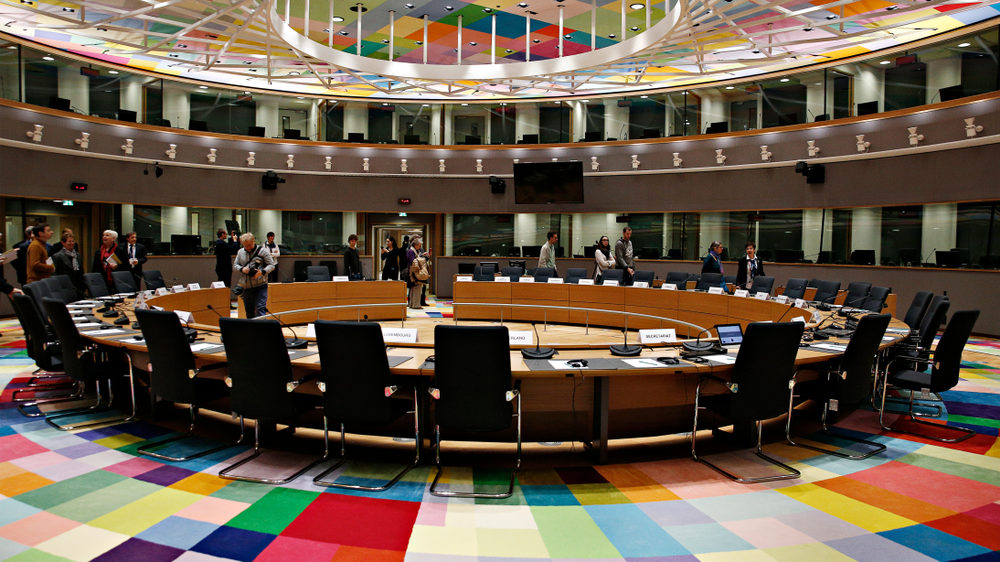
On its face, the request from the U.S. Department of State seemed simple: Design a digital dashboard to allow officials to quickly research how often United Nations (UN) member nations had sided with the U.S. on various topics. Wondering how often the votes of the U.S. and members of the G-77 have coincided on issues related to human rights? Nuclear arms and disarmament? Decolonization? Plug in the variables and find out.
In practice, it was anything but.
“From a policy perspective,” Associate Teaching Professor Fiona Creed says, “people often think there are a lot of possibilities, and there are. But then you add the data piece into it, and you realize—this may not be as straightforward as we think.”
It was the spring of 2020, and Creed had secured a project via the State Department’s Diplomacy Lab program, a public-private initiative wherein the federal agency partners with colleges and universities, outsourcing research and other tasks related to foreign policy challenges by offering student teams, led by faculty experts, the opportunity to wrestle with real-world problems.
For this particular project, the charge was to find a way to measure and visually render the degree to which members of the Group of 77 developing nations (a bloc that now numbers 134 and includes Cuba, Iran and Afghanistan) had voted in alignment with the U.S. Creed found the problem fascinating, and she knew her students in the College of Professional Studies’ Global Studies and International Relations graduate program would embrace the challenge.
She also knew they couldn’t do it alone.
The task was perfect for Creed’s students because it required researching, developing, and applying a sophisticated understanding of international relations to categorize UN resolutions and group them by topics and subtopics. But it also entailed logging the votes on each resolution, building digital dashboards, and figuring out the best ways to graphically render the decades of information contained in the UN voting history. Massive amounts of data were involved. The numbers would have to be crunched, the code written, and a design that would let users easily turn the figures into images such as bar graphs would have to be conceived and executed. All of it would take some serious expertise in programming and data analytics.
A long-awaited collaboration
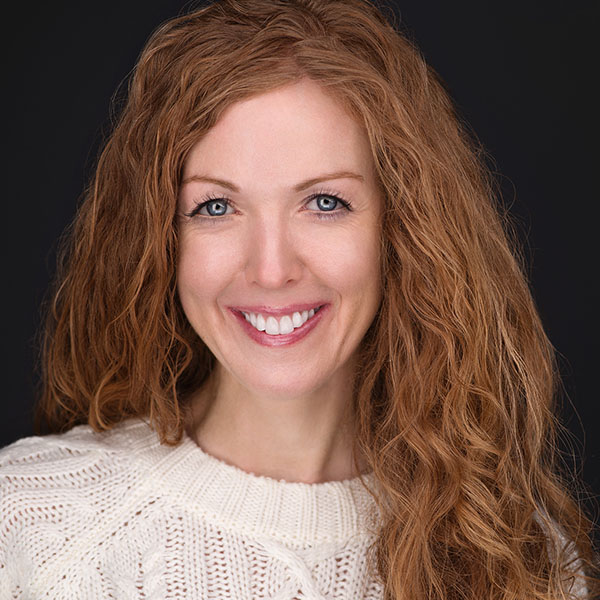
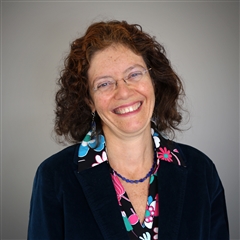
Luckily, Creed knew just whom to call—in fact, that person was sitting right across the hall.
“Alice is very good at explaining to me how the data works and what’s actually possible,” Creed says of her colleague and office neighbor Alice (pronounced ah-LEE-say) Mello, an assistant teaching professor in the Master of Professional Studies in Analytics program. The picture that emerges as the two describe working together is a kind of collaborative counterpoint, with Creed the visionary international affairs expert and Mello the technical miracle worker—and grounding voice of reason.
“I come in with big ideas,” Creed says. “‘This is amazing! We can definitely do this! Absolutely! Consider it done!’ And then Alice is right there saying ‘No, actually, that’s not going to work, because the data just won’t support it—but here’s what will work.’”
That synergy, rooted in shared experience and complementary expertise, has been years in the making.
Creed, whose career has encompassed research, diplomacy, entrepreneurship and the nonprofit sector, was born in Ireland and started her professional life as a policy analyst at the EU Delegation to the United Nations in New York City. She later served as executive director of the United Nations Association of Greater Boston, where she oversaw operations including Model UN, the Association’s flagship experiential learning program focused on diplomacy and global issues. For her PhD in European Studies at University College, Cork, Creed studied EU coordination at the UN.
Mello, born in Brazil, began her professional career as a programmer while still a student at the Federal University of Bahia in Salvador, Brazil. She went on to work as a software engineer for Coelba, the big utility that distributes power in Bahia state. She later developed database management applications for the Massachusetts Water Resource Authority, worked as a programmer at MIT and co-developed a technology-in-education consultancy. Her PhD from Tufts University is in Education, Technology, and Drama.
When the expatriates met at Northeastern, Mello says, they quickly found common ground, and before the Diplomacy Lab opportunity arose, they had long imagined working on a project together.
“I had a project with the UN in 2018,” Mello says, “and I approached Fiona about how we might make it sustainable, but we didn’t really end up pursuing it. Another time she asked me to present to students who needed data analytics on their projects. So we’ve had a few times that we’ve tried to work together, but nothing really went up. This time, it did.”
With students in their capstone classes and other courses onboard, the two educators launched the project. Soon, as global studies students sifted through thousands of UN resolutions, applying their knowledge of international affairs to categorize each, data analytics students began building the user dashboard and writing the code to generate a powerful, intuitive interface that would allow end-users to easily parse the information to suit their needs. As the students worked, their collaboration began to mirror that of their professors.
“One of the most interesting pieces for us was hearing the students interact,” Creed says. “The identification of the countries was becoming so fluent for the data analytics group that they were starting to notice things about the politics and to ask questions that the global studies students could answer. It was brilliant to see that come together.”
“For the analytics students it was super-interesting,” Mello adds, “because it’s basically getting qualitative data and transforming it into something quantitative. If it’s all quantitative, you punch in the numbers—and I’m not saying it’s easy—but you can do it. But to get qualitative data and then to transform that into quantitative, to look at patterns and have some basis for it statistically, that is where all the magic and the synergy came in.”
Inherent uncertainty
As students labored to build something new, part of the challenge became grappling with ambiguity. When you’re inventing something, it can be hard to know what success—or a good grade—will eventually look like. But learning to tolerate the uncertainty inherent in such a process, Creed and Mello say, actually helped students explore new modes of thinking.
“Working logically, analytically, but also understanding the process isn’t having all the answers, it’s figuring them out—I had never had that kind of thinking until I did my PhD,” Mello says. “But in this project, we tried to bring that to these students, because that’s the thinking that they need to do well to be good data scientists and good data analysts. It really resonated for me, to see them learning that way.”
Creed and Mello also note that, in some ways, the composition of the classes doing the work reflected the subject of the work itself.
“I had students from India, Ethiopia, a student based in Kuwait, and one in Qatar, who is in the U.S. military,” Creed says, “and then Alice’s group had students from China, India, and the U.S. When you’re looking at policy making and analyzing all of what was in front of us, it was really interesting to get the perspectives of students who were from the countries that they were working on and seeing patterns, or not seeing patterns, and then we could tease out afterwards with them, ‘What do you think of that?’ or ‘Why is that?’”
One of the most interesting developments, the researchers say, was the shift from a U.S. focus to a more global perspective. Engendered in conversation with their UN contacts, in the perspectives of students from diverse countries of origin, and through their own lenses as immigrants, that shift came to reflect the deepest mission of the portal that would eventually be known as the Global Consensus Toolkit.
“A primary motivation for having a public access portal,” Creed and Mello write in the introduction to the visual analytics platform they and their students developed, “is to level the policy-making playing field.”
“There was a lot of data,” Creed says. “We worked with it, Alice and I, plus multiple teams of students. There are many departments of foreign affairs or governments, globally, that just do not have the time or money to dedicate to getting into the UN digital library, downloading everything, coding it, reworking it—and so that’s where coming back to that original Diplomacy Lab ask, that we saw the relevance of this material being publicly available. And the usefulness of it.”
Big audience, broad applications
That usefulness, Creed and Mello say, reaches far beyond international affairs. Although the Toolkit was designed with diplomats in mind as the end-users, the information it contains—and the lenses it provides for sorting and analyzing that information—might easily be applied in the work of researchers, think tanks, nonprofits, advocacy groups and policy decision-makers or anyone else seeking to accurately chart the tides of power and the relationships among nations over the past 20 years.
From their “client,” the Global Consensus Toolkit earned rave reviews. When students presented at the State Department via Zoom, the reception was unequivocal. A senior UN official in attendance, Creed reports, was astonished.
“He said, ‘That is amazing. We have tried to work with this data before and we have never seen anything like that,’” Creed says. On the spot, he proposed a continued collaboration, one that would involve digging even deeper—and would not require a new application through the Diplomacy Lab program. With that project in mind, Mello and Creed plan to align their capstone classes this winter and next spring. For now, they are delighted to invite the world to use the free, online tool they and their students developed.
“Fiona told me in the beginning that nobody had done this work before,” Mello says. “There have been some static models of voting patterns, but we were able to create an interactive dashboard that is really functional—and that, nobody has done.”
Data Analyst Trey Williams Values the Firm Foundation Built at Northeastern
Intention, persistence, and perspective. These are some of the themes that rise to the surface when talking with 29-year-old Trey Williams about his Northeastern experience. But looking back, he will be the first to admit that this level of maturity took time to develop.
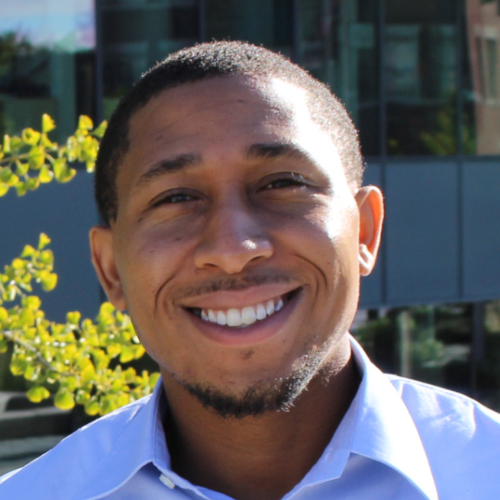
Trey graduated from New Mission High School in Boston’s Mission Hill neighborhood in 2010, and although he took mostly advanced level classes and had college aspirations, he hadn’t applied himself seriously enough to get accepted anywhere. When he heard about Northeastern’s Foundation Year program through a local youth support organization, he knew he’d found himself a pathway to a college degree; but his first year of college was a rocky start, and he almost didn’t make it through the first semester. “I was a kid. It was the first time I had responsibility, and I didn’t know how to manage that freedom properly. I wasn’t asking the right questions and didn’t know who to talk to, and at first I was just in it for the piece of paper at the end.”
With thoughtful guidance from the Foundation Year faculty and advisors, Trey finished the year on the Dean’s List and matriculated into the College of Professional Studies—starting as a Biology major before transitioning to Psychology, and eventually settling on Management. Like many students in the College of Professional Studies, he had to work full-time to finance his education as he went. As he neared the completion of his degree, the financial burden became too high, leading him to quit taking classes. “In 2015, I ran out of financial aid, and that’s when it hit me that life is real and you have to be very intentional about the choices you make. Losing financial assistance, not being able to graduate, watching friends and family members graduate around the same time. That really hit me hard.”
After working for several years in hospitality, Trey found himself at a crossroads. “As you rise through the ranks in your career as a person of color, you start to see less and less people who look like you, and it can be hard to gain favor. Over a four-year time-frame, I worked my way up to a Director level, but still no one took me seriously, because I didn’t have a bachelor’s degree.” With the perspective he had gained over his years in the workforce, Trey knew he wanted to become a financial analyst, eventually pursue a PhD, and become an economist. But the first step was to complete his undergraduate degree.
“As a person in my early 20’s, paying for my education cost my entire life savings. I had slowly been saving over time, and I realized I could either use that money to invest in my education or keep working service industry jobs that would end up working me to death. And I figured that by the time I was 40 I would probably want to still be able to stand.”
Trey graduated with a degree in Management from the College of Professional Studies in 2019. He recalls, “Some of my friends didn’t end up graduating because even after finishing Foundation Year, they still experienced financial barriers they couldn’t overcome towards finishing. For me, it took 9 years.” Even after completing his degree and pursuing several certifications in financial modeling and analytics, he had trouble finding a job as an analyst. “I had to be in the workforce for a little while to realize that just because you have a piece of paper doesn’t mean you’re any more qualified than the person standing next to you. I needed to be ahead of the crowd on the cutting edge. I needed to be at home doing research in my free time. And I realized I would also need a master’s degree.”
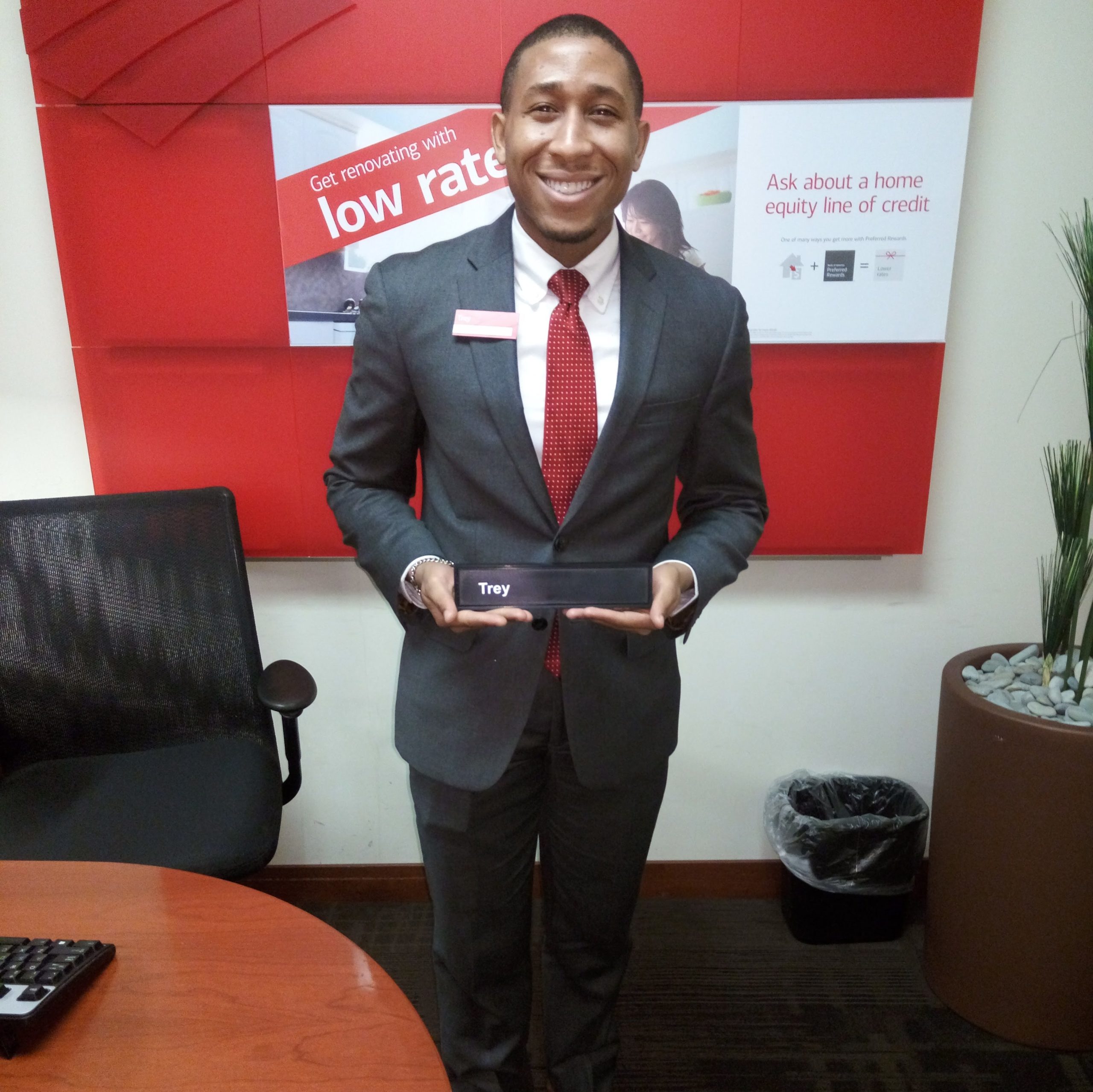
By this time, Trey had gained perspective through life experience and had created a set of intentions and goals which he planned to achieve by investing in his education. But persistence always came naturally. “I lost a friend when I was young and knew I wanted to get my family out of the neighborhood we lived in. I lost my mother at 21 and wanted to help my grandmother. I wanted to be an example for my younger brother. I wanted to begin to establish generational wealth for my family. I knew as long as I applied myself and worked my connections, I’d get there.” Trey completed his master’s in analytics in July 2021, started a data analytics consulting company, and accepted a data science fellowship with The Data Incubator, an immersive training program designed to fine tune the skills necessary to become a leader in the data science field.
Having made measurable strides toward his goals, Trey has had time to step back, reflect, and begin to pay it forward. In 2020 he joined Northeastern’s Young Alumni Advisory Board as Chief Executive Connector. “I’d like to mentor current students to help them understand why they’re in school, how they can apply their skills and education to work in the world, and how to work their interests and passions into their course of study. I want students to have a more active role in engaging with project and academic work than I did as an undergrad.”
He has also had the opportunity to consider his personal journey from the very beginning, starting with Foundation Year. “The Foundation Year faculty are amazing, they give 110%. I see the value that they brought to my life with extra support and hand holding, because I was not prepared to be in a college environment, and if I had gone straight into the standard Northeastern experience, I don’t think I would have been able to survive let alone perform at a level that was exceptional. They were able to give me the space and feedback necessary to grow. Foundation Year is everything. It really is the foundation.”
Foundation Year is an innovative, first-year college program at Northeastern University College of Professional Studies that provides students from Boston with rigorous academics integrated with student support services to create an environment where students can be successful for their entire Northeastern college experience. Learn more about Foundation Year.
Learn more about our programs
Wide-Ranging Research Wins Recognition at RISE Awards
Six CPS students were honored at the 2021 RISE Awards, which recognize members of the Northeastern community universitywide for exceptional work in research, innovation, scholarship and entrepreneurship.
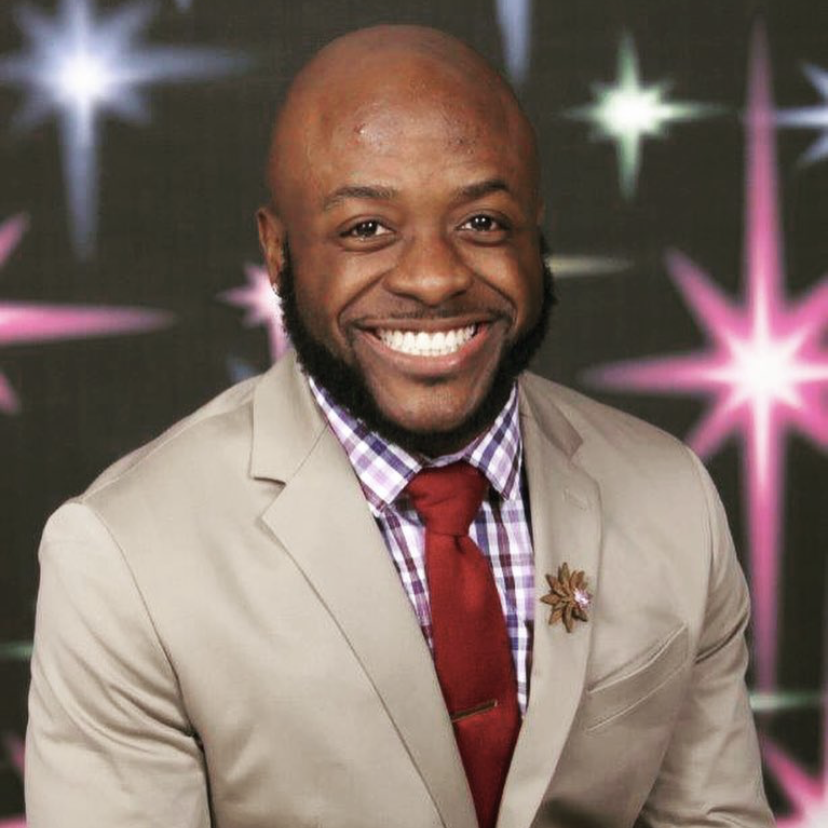
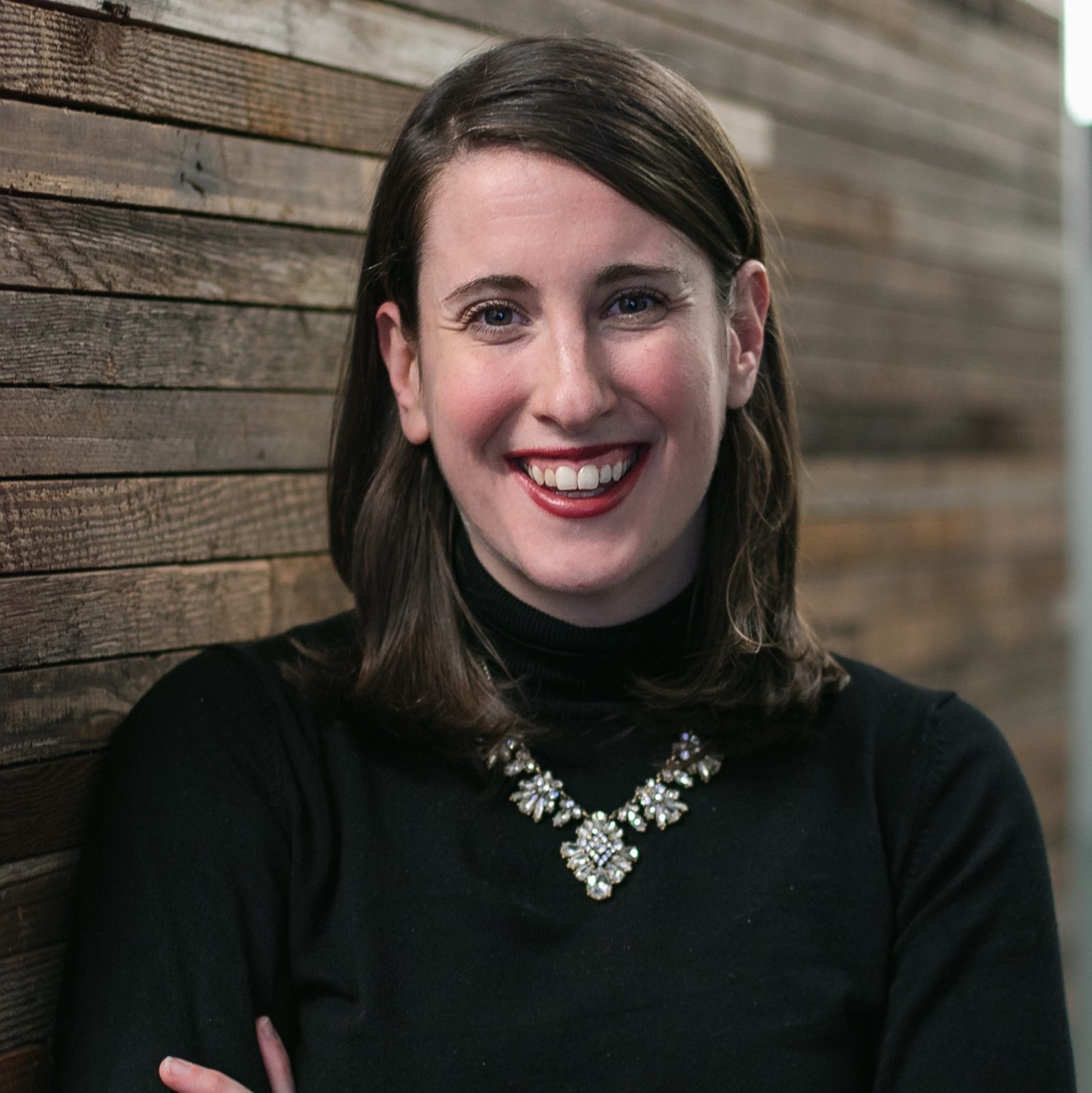
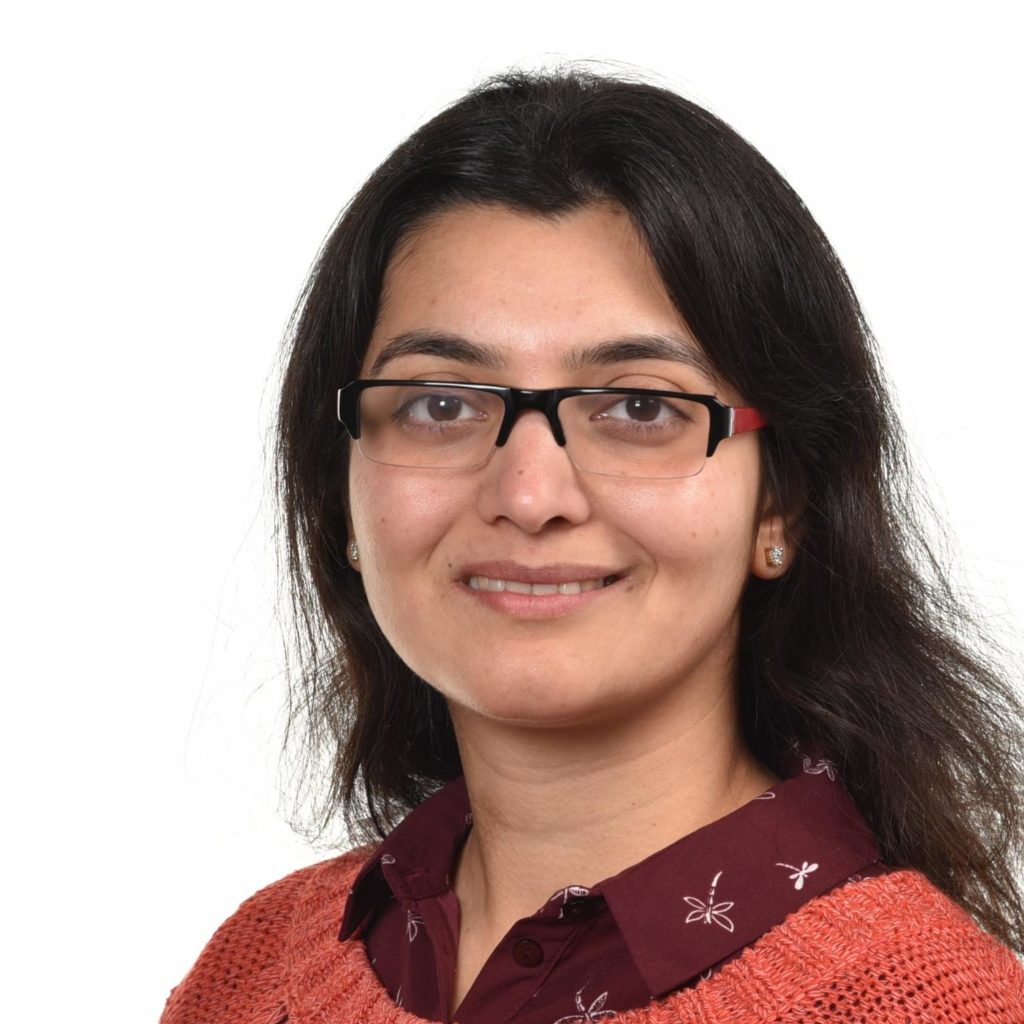
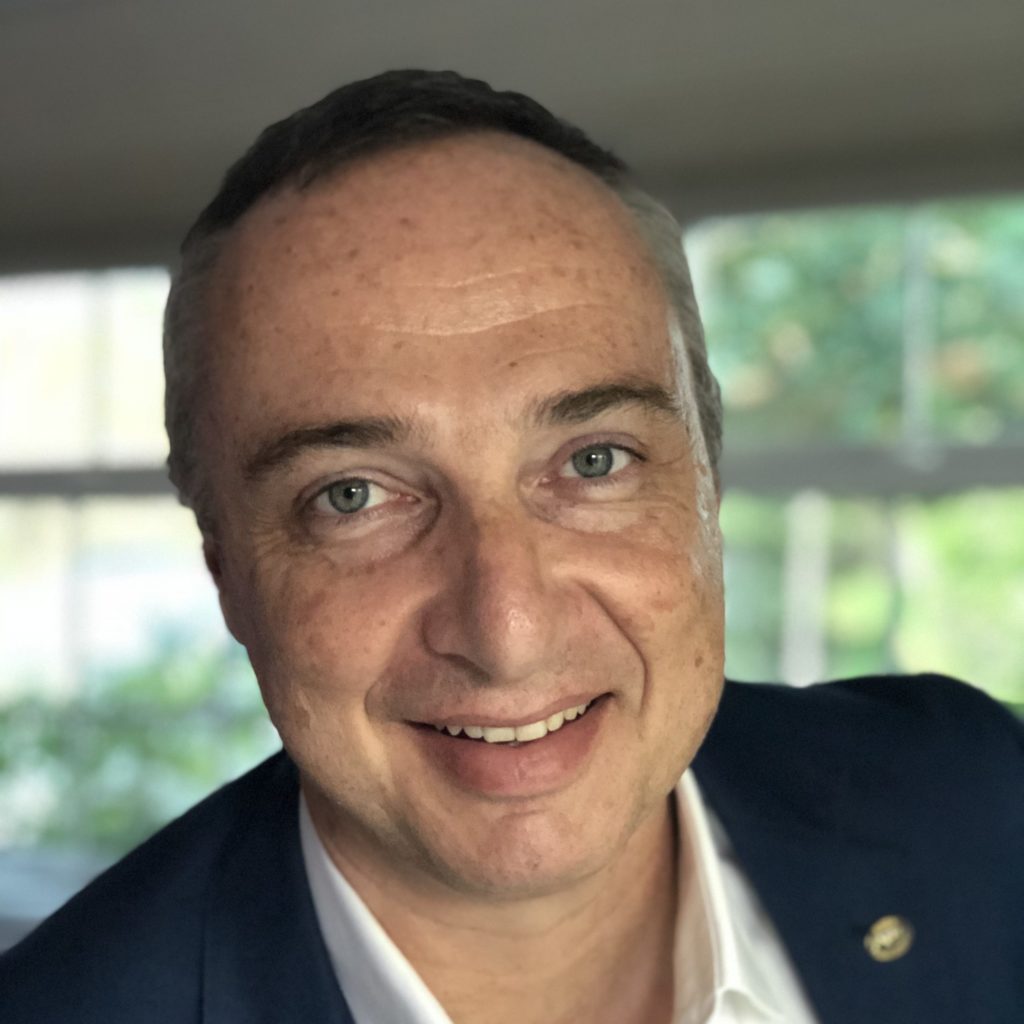
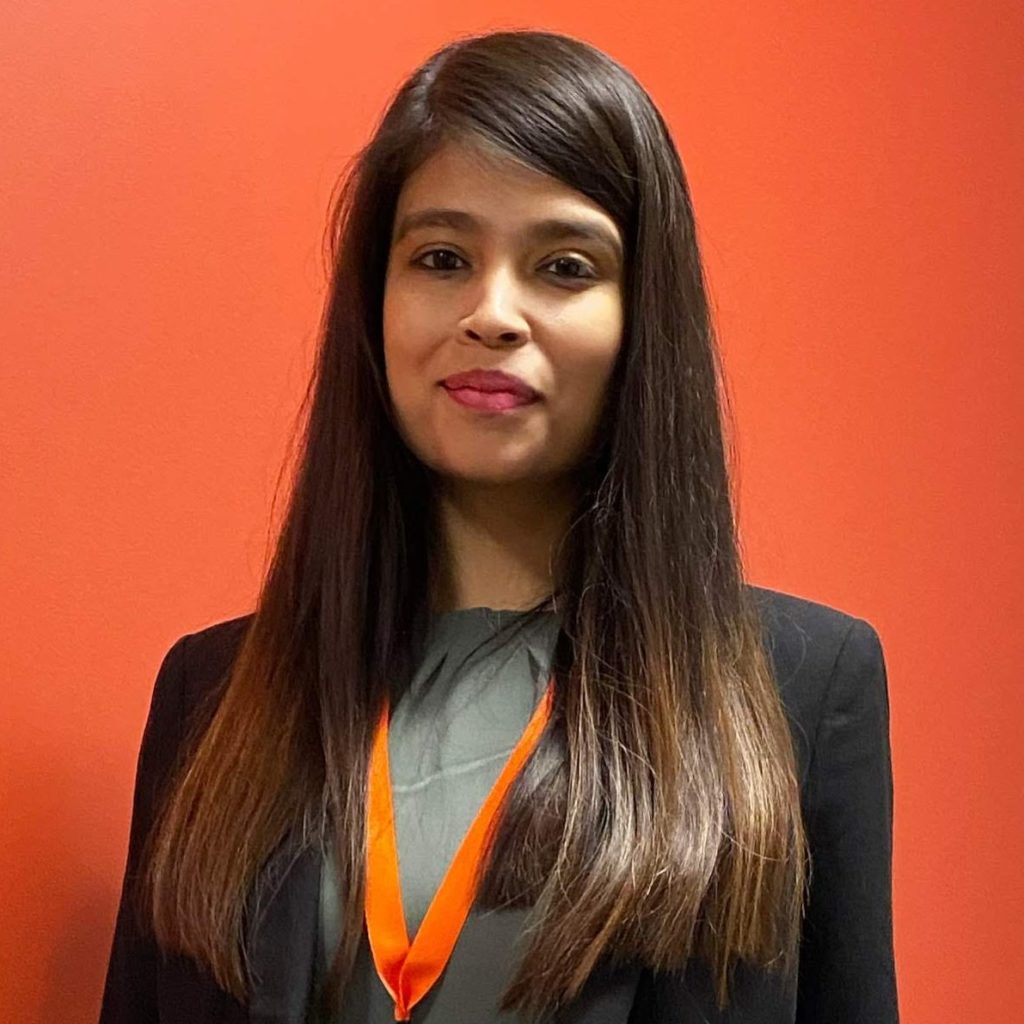

Victor Aimi (MS ’21, Corporate & Organizational Communication), Emily Bauer (EdD ’21, Higher Education Administration), Rhea (MPS ’21, Analytics), Joel Livingston (EdD ’21, Education), and Shreshthi Mehta (MS ’21, Leadership) won Focus Awards, while Kelsey Kaul (EdD ’22, Education) received a Category Award in Social Sciences, Business, and Law.
“The RISE Award means that others believe in the work I have done,” Livingston said. “I have always been someone who is self-motivated, but knowing that others see the significance of my research inspires me.”
Inclusive Engagement
Livingston was honored with the Graduate Innovator Award for “Restorative Justice Challenges and Culturally Responsive Classrooms to Improve Engagement.”
“Culturally responsive teachers create classroom environments that utilize symbolic curriculum to highlight beliefs and values related to cultural diversity and ensure that the images portrayed reflect positive aspects of multiculturalism,” Livingston said, describing his research. “Even more, culturally responsive classrooms can assist in keeping students of color engaged in class, which in return can influence positive behavior. In addition to culturally responsive classrooms, the implementation of restorative justice practices is recommended to maintain positive behavior. In many schools across the United States, restorative justice practices have been used as an alternative to suspensions, expulsions, and other exclusionary disciplinary practices. This inequality can prevent students of color from succeeding throughout their educational trajectory, leading them to misbehave more in school and the school-to-prison pipeline, which will ultimately prevent them from being successful and unlocking their full potential.”
The study for which he was recognized, he said, was designed “to ensure that restorative justice is more than just a buzzword in education.”
Diversity in Tech
In her project, “Reforming the Referral Process: Increasing Diversity for Tech Startups,” Kaul sought to address equity in the workplace.
“My research is rooted in understanding how to improve the diversity of technology teams at startups,” Kaul said. “This work is important because the technology sector impacts each of us, every day. Although the tech sector creates products for everyone, the teams that do this work are often not representative of the users they serve. The tech sector needs to increase its diversity to create better products.”
Kaul examined ways in which such companies can improve their diversity, focusing on how to ensure that referrals can diversify the pool of job candidates.
“This work is especially important to me because of my focus on ensuring the success of women and minorities in STEM,” she said. “At Northeastern I work with master’s in engineering students who are the future of the technology sector. My program is over 50% female, which is unique in this sector. In my role, I help these students prepare for their future careers in tech, but I often ask myself, where are they headed? Is the industry ready to support them? That is what led me towards this research.”
Improving Access
Supporting the success of women is at the heart of the work of Shreshthi Mehta. In “Exploring the Challenges of Employing Women as Porters in Cusco, Peru,”Mehta studied the cultural and demographic barriers preventing women from working as porters on the popular tourist trek to the Incan citadel of Machu Picchu. Her research revealed how measures to ease women’s access to such coveted jobs have proved profitable.
“Women of many cultures face several stereotypes, where they are prohibited from pursuing certain jobs or careers,” Mehta said. “The story of women porters in Cusco and their pursuit to work in a severely male dominated profession is revolutionary. It showcases the DEI [diversity, equity, and inclusion] initiatives of the owners of Evolution Treks in how diversity has proven to be beneficial to the tour company, in spite of the higher operational costs of employing women porters.”
Cross-Cultural Communications
Victor Aimi’s identity as an immigrant, he said, informed “Cultural Challenges of International Websites,” in which the native Argentine “set out to study why websites sometimes seem to have a mind of their own when accessed overseas.” In the course of his work, Aimi found that web technology is just one dimension in the more complex problem of making the web work well across borders.
“This is fascinating to me,” Aimi said, “because websites are a central part of any communications effort with international audiences, yet I did not often think of the cultural dimensions enabled by the web before this project. My habit was to just to rely on the technology.”
Receiving a RISE Award, Aimi said, illuminated his own identity in a way he hadn’t expected.
“As an immigrant I often experience cultural differences as a burden,” he said. “The award made me realize that cultural awareness can also be an advantage. I’m truly grateful to Professor Patty Goodman for helping me figure that out.”
Improving Efficiency
Rhea — who, like Aimi, is an international student—rooted her research in resource optimization, using her project, “Predicting Memory Utilization on High Performance Computing Cluster,” as an opportunity to help hone the efficiency of Northeastern’s research computer network.
“Northeastern made it easy for me to settle down in the culture,” the Analytics graduate said of emigrating to Boston from her native India. “At the very beginning of my experience, I was offered a part-time job at Northeastern, in Research Computing. I felt ecstatic and I couldn’t wait to apply all the knowledge into practice as I learned. I had a chance to learn from the best professors at CPS. This project was my chance to use my knowledge to create something for my university.”
By analyzing the way Northeastern’s high-performance computing cluster utilized memory, she developed a data analytics framework and a machine learning model that makes the cluster more efficient—and more easily accessible to researchers.
“I was lucky to have had this opportunity to learn from the best of my team here in the Research Computing department at Northeastern, and I can’t thank them enough for their constant support and motivation,” she said. “This experience has created a platform for me to move forward, and it has set a path for me to reach my career goals.”
Mental Health Literacy
Emily Bauer’s dissertation, “Mental Health Literacy in Student Affairs Graduate Preparation Programs,” focused on training non-clinical college and university student-affairs staff in identifying and intervening in emerging mental health issues for students. Citing increasing student mental-health concerns—and observing that they are now coupled with the lingering effects of the Covid-19 pandemic—Bauer described her study as a pilot education program aimed at graduate students in student affairs master’s programs “to enhance skills and confidence in the area of mental health literacy.”
Like many of her colleagues, Bauer’s research was inspired by direct experience in which she discerned a broader challenge.
“I chose the framework of mental health literacy based on my perspective as a mental health first aid instructor,” she said, “which has shown me that anyone can support and help others experiencing mental health concerns. I would like to empower those in my field to do this and take action to support students on college campuses.”
Livingston noted that his work, too, was rooted in personal experience.
“Restorative justice in schools is important to me because as a student in New York City public schools, I had several teachers who misinterpreted my lack of focus as defiance,” he said. “As a teacher/school administrator, I see many students experiencing the same issues I had. I am now in a position where I can change this narrative, and that is what I intend to do.”
Solution Seeker
Sagar Ashok Daswani (CPS ’20) uses big data to help companies and communities thrive.
“I’ve always been interested in solving problems,” says Sagar. “I especially like business problems. My family liked to talk in numbers.”
In his pre-teen years, Daswani, whose family is in the clothing business, could often be found with a Rubik’s Cube in his hands. In high school in Gujarat, India, he took a coding class, got excited about algorithms, and built his own Sudoku game. In his first year as an undergraduate at Dharamsinh Desai University in Nadiad, India, he learned how to build cloud-hosted websites. Then he noticed that students in the small town where he lived were having trouble accessing books, electronics, lab supplies and other educational materials they needed for school. So, as a sophomore studying computer science, he launched malgadi.co.in, a nonprofit designed to make it easier for students to get such items. With word-of-mouth buzz and a logo depicting a speeding delivery truck trailing Hot Wheels-style flames, the idea soon took off.
“A couple of friends and I saw a problem and said, ‘there needs to be a solution,’” Daswani says. “We programmed it from end to end, building a proper e-commerce website. We managed inventory and projects, and we hired students. Now, people can get these things delivered to their doorstep.”
The experience, Daswani says, was instructive.
“We wanted the thrill of entrepreneurship, and to see how big and small companies put it together and build a great product,” he says. “We converted the startup into a student-entrepreneurs organization, and we recruited students from the junior class. Then we expanded to other colleges. It’s a way for students to learn entrepreneurial skills—soft skills, business strategies, how to handle credit. We had applied what we learned at school to a practical problem.”
The following year, as a senior, Daswani again applied the tools he had gained in an academic setting to generate a business solution. As a software engineering intern at the Indian Space Research Organisation—the Indian equivalent of NASA—he used the Java programming language to engineer a “Monte Carlo” simulation to predict the effect of high-energy solar winds on the functioning and survival of a “sand detection box” inside the planetary-surface exploration devices known as rovers.
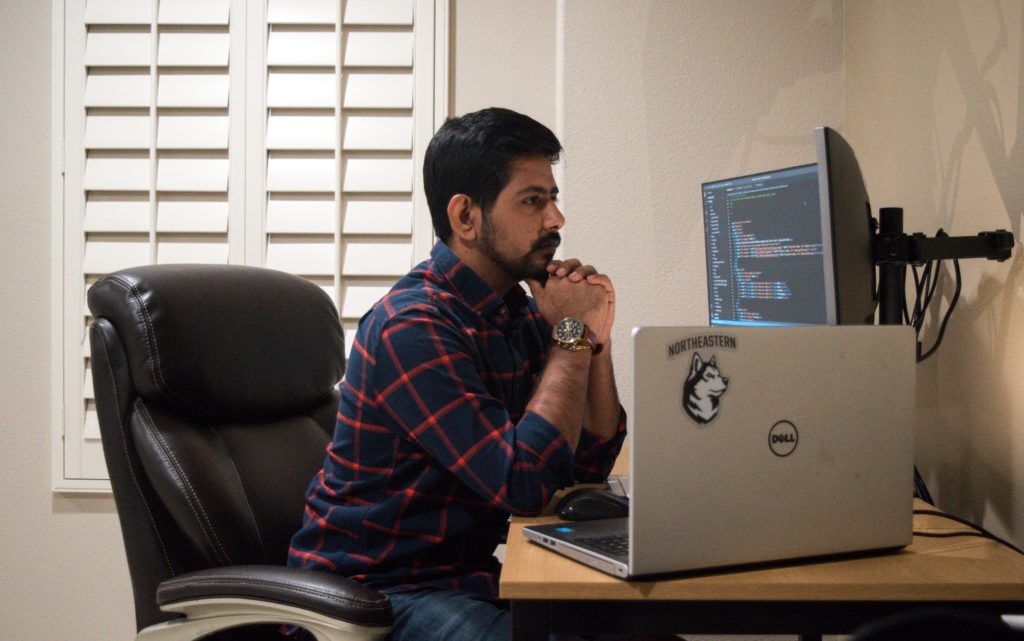
“To increase a rover’s lifespan,” Daswani says, “we integrate different materials—gold, copper, aluminum, sand, other things. Then you bombard it with high energy particles to see what will happen: Will the particles get inside? Will they destroy the circuit? To carry that out in real time is very, very expensive. So, I created a simulation, and it reduced the cost by a lot, and they’re going to be using it. It was a fun experience.”
With a bachelor’s degree in hand and several big problem-solving successes under his belt, Daswani’s next goal was to find a graduate school that would support his passion. A cousin who was attending Northeastern suggested he explore the programs at the College of Professional Studies, and when Daswani heard about Northeastern’s commitment to experiential learning, he was instantly intrigued.
“My cousin told me about how, at Northeastern, you get to interact with real-world business problems to help an organization,” Daswani says, “and how there are learning problems you can get your hands onto. I’ve always been interested in practical approaches—not research so much, but business problems. I started at Northeastern right after I finished my undergrad.”
At Northeastern, Daswani says, he decided he wanted to learn more about bridging the gap between technical and business users of technology, and he designed his program of study accordingly. He took courses on the foundations and applications of AI, intermediate and predictive analytics, and data visualization—anything that he thought might help him learn about the practical applications of big data. He participated in no less than four real-world projects, building his skills by helping a medical device company optimize its freight system, digitizing historical documents for a nonprofit, using big data to assess startup survival for a crowdfunding company, and working with a blockchain and healthcare company to provide solutions for their client physicians.
He also started to make connections.
“One of the great things that happened at Northeastern,” Daswani says, “is that I was introduced to so many different professors—not only in the College of Professional Studies, but across the University.”
That, he says, stood him in good stead when he and other students wanted to start a campus organization to encourage and support the exploration of artificial intelligence and machine learning. The result, AI Skunkworks at Northeastern University, came about through a collaboration among students and faculty. On its website, the organization describes itself as “a group of people who research and develop Artificial Intelligence, Machine Learning, and Deep Learning projects primarily for the sake of innovation and learning.” With the support of the University, the group provides members (who playfully refer to themselves as “skunks”) with open-mics, mentorship opportunities, workshops, seminars, hack-a-thons, and other events exploring the implications and potential of artificial intelligence, machine learning, and Deep Learning, a subset of machine learning that involves artificial neural networks driven by algorithms and is a special interest of Daswani’s.
“I delivered a workshop myself on neural networks and concepts of deep learning,” he says. “That was an opportunity to bring my expertise and share it with other students and help them learn more about it.”
He also organized a NASA space hackathon and, in the course of these and other projects, Daswani’s leadership skills and commitment to the Northeastern community earned him a nomination for Outstanding Graduate Student.
Those qualities—and his technical abilities—have not gone unrecognized in the wider world. Soon after graduating from the College of Professional Studies with a master’s degree in Analytics, Daswani applied for and landed a job as a junior software engineer and data scientist with Lattice Automation, a Boston startup that designs customized software for companies involved in synthetic biology.
“Our work at Lattice,” Daswani says, “is to build lab-automation software that helps scientists make the best use of data, so they can track performance and see what’s going on inside the lab. My role is to help build dashboards to provide the best possible interactive environment for biotech companies—it’s software for data scientists.”
The experiential learning model that he had encountered at the College of Professional Studies, Daswani says, is what prepared him for the job.
“I got exposure to this kind of work through my capstone project at Northeastern, where I built a website that lets users visualize how a startup is performing and evaluate the chances of its survival, based on patterns in the historical data. This particular job also demanded that expertise, and I had experience working on a real project in the capstone. They liked that.”
The opportunity to participate in that kind of hands-on learning, Daswani says, is what led him to Northeastern in the first place. But he was also impressed by the diversity of the community he found there.
“I got a chance to work with people from many different backgrounds and cultures,” Daswani says. “In every company in the U.S. right now, there are people from different places, and it’s a great start to be interacting with different people to get to know more about their side of the story, their perspective. Being able to look at the bigger picture helps with any kind of work.”
So, what’s next for Daswani?
“I’m still new in this professional world,” he says, “so I’m not sure yet. But eventually I think I’d like to start my own company, where I can leverage AI, solve business problems, and bring value to the community. I’ve always been curious to implement what I learn academically in real time, to see how it can actually help to make change for a company—or in the world.”
Meet Archie, Data Scientist
Hear from Archie Jain ’19 about how the Master’s in Analytics program combined industry insight from faculty working in the field with core knowledge.
Always Growing
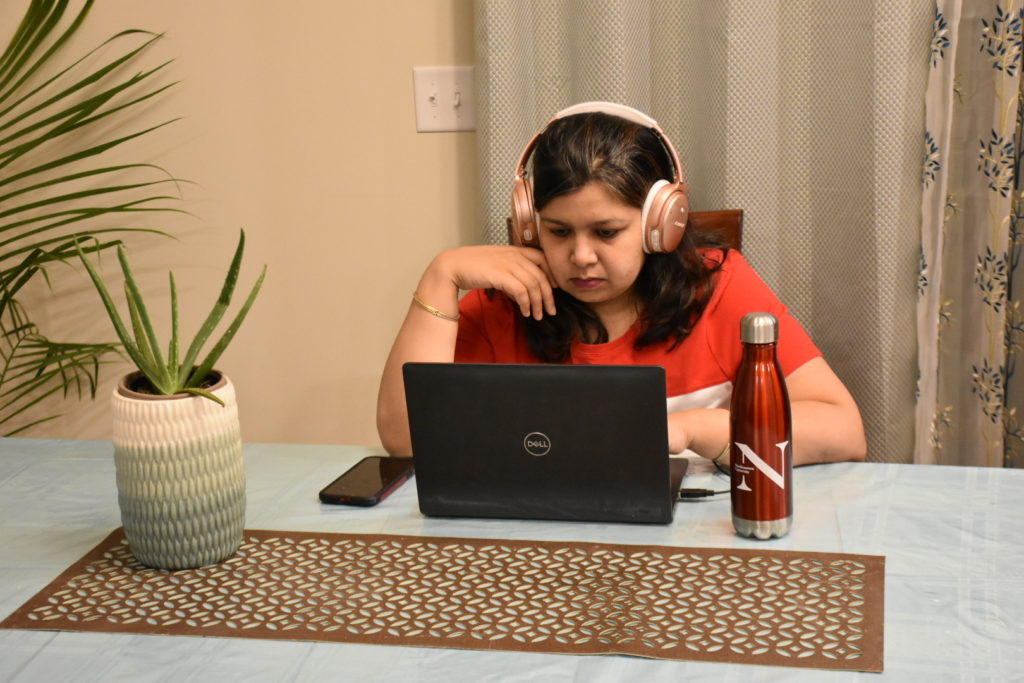
Smita Gupta has a passion for analytics.
“These technologies are always growing,” she says. “They’re never stagnant. You can always get updated with new tools and learn how to create something new.”
Gupta’s skill in analytics dovetails nicely with a related interest—collaborating with colleagues and helping businesses succeed.
“In the field of analytics,” she says, “I’m able to interact with people in roles from the top-most positions to the most entry-level—whoever there is in your company. So I meet all kinds of people, and that also keeps me engaged in working with these technologies.”
Gupta’s interest in information technology (IT) started at the Indira Gandhi Institute of Technology in New Delhi, India, where, in 2005, she earned a bachelor’s degree in technology, electronics and communications. Her first job was as a software engineer at the multinational professional-services company Accenture. It was there, she says, that she first developed an interest in data analysis and SQL. She went on to several jobs in data management in India before moving to North Carolina in 2015, where she worked first as a consultant and then as a systems analyst at software company Cotiviti Inc. She enjoyed the work, she says, but also yearned to be closer to the cutting edge in her field.
“I liked the work I was doing with data,” Gupta says, “but these new technologies were appearing, and I was interested in predictive modeling and visualization, and I wasn’t getting to work with it in the roles that I had. So, I thought returning to school might be a good option—to get a broader overview and learn more. I wanted to be able to utilize new technologies and possibly enhance my career.”
With that in mind, Gupta began the search for a master’s program with advanced analytics courses. She and her husband had recently moved to Massachusetts, and after looking at several universities online, she found the Master’s in Analytics program at Northeastern’s College of Professional Studies. She read through the curriculum and realized that it covered exactly the blend of topics and technologies she was looking for, including predictive analytics, artificial intelligence and the programming languages Tableau, Python, and R.
“What was most interesting to me,” Gupta says, “was learning about the experiential and capstone courses that could help me apply the principles and tools of analytics to real-world problems or projects within a sponsoring organization.”
Despite her excitement, returning to school after working in the professional world for a decade was also a daunting prospect. She had an established career, her daughter had just turned 6, and she and her husband were planning to have another child.
“I was scared and anxious,” Gupta says. “And I was thinking: How will I adapt to a new culture, going to school after those 10 years? All the students will be so much younger than me. And maybe the professors will be my age!”
Her husband’s support, the program’s flexibility, and the support she received from faculty and fellow students soon laid her fears to rest. She also found that, despite her worries, her professional experience made her a natural fit for leadership roles in projects and discussions.
“In my previous organization, in addition to performing analytical operations, I was also the technical leader and managed some of the teams,” Gupta says. “So, I had some experience coordinating the team and assigning tasks.”
Those skills were particularly useful, she says, when it came to the hands-on projects her classes required—projects she calls highlights of her educational journey at Northeastern. Gupta participated in both an experiential learning project—analyzing data and creating dashboards for Viacom, a leading worldwide media company—and a capstone project in which she and her team developed predictive models for a multinational footwear and apparel company.
“I learned so much in those two programs,” Gupta says, “both in terms of how data should be analyzed and the variety of techniques with which it can be presented to a target audience. The procedures we learned for generating insight were very helpful. With the support and advice of our professors, Dr. Nathaniel Lin and Dr. Alice Mello, we were able to successfully complete the projects.”
It was especially satisfying, she says, to learn that the companies had accepted the dashboards the class had created and would be implementing them in the real world.
“Our presentations went well,” Gupta says, “and our professor told us the sponsors would be using what we had prepared.”
Three months after graduating with her Master of Professional Studies in Analytics, Gupta was hired by Northeastern’s Human Resources Department, where she now works as an HRIT Data Analyst, writing scripts—essentially smaller computer programs—to analyze data. Her work provides the colleges and departments throughout the University with reports to help them increase their effectiveness, a role she loves. Her family has grown—she and her husband have two daughters now—and in her free time she enjoys painting and drawing, an interest she shares with her elder child.
“I made the right decision, to complete this program at Northeastern,” she says. “I learned a lot, and it changed my perspective and improved my analytical skills. What I really enjoy is finding the patterns within the data—generating useful insight to help people have better procedures from a business perspective. If I can do something that helps people in any way, that keeps me motivated.”
Experiential Excellence Celebrated—Students and Employers Both See Benefit
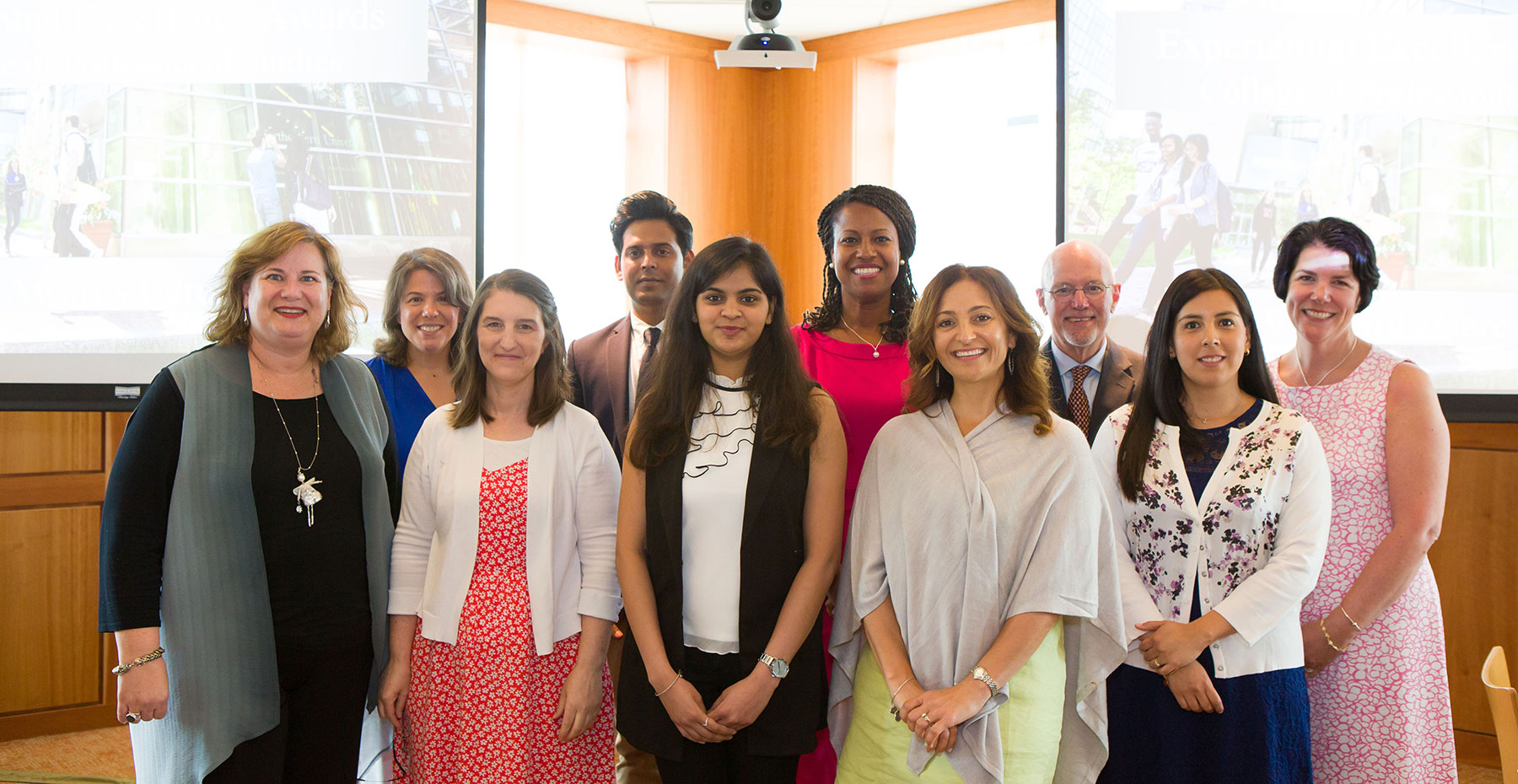
With experience-driven learning a cornerstone of a Northeastern education, the College of Professional Studies presented its annual Experiential Excellence award to 10 students in June. Students, and the employers and sponsors who supervised their work and nominated them for recognition, gathered with faculty and other academic leaders to celebrate the power of applied learning at the undergraduate and graduate levels. All student winners engaged in meaningful professional experience in the form of co-op positions (working full-time for an employer), a sponsored project in their course or capstone, or an experiential project at their current place of work. Students’ experiences were directly aligned with their academic work, complementing the body of knowledge in their chosen field with an industry-embedded perspective.
Notably, the Excellence award winners demonstrated outstanding commitment to the university partners they partnered with on experiential opportunity. These opportunities are broad and representative of the global reach Northeastern and its student benefit from. This year, the students’ work included planning and implementing a talent acquisition strategy for an education organization, strengthening digital engagement for an arts and advocacy organization, and creating and managing a quality assurance program in the regulatory affairs unit of a contract development and manufacturing organization, among other outstanding experiences. The common thread though all of the students’ work is their enthusiasm for their chosen industries and their demonstrated ability to connect their academic learning to practice in the workplace, ultimately producing incredibly valuable work for their sponsors and employers.
One award winner, Michel Jennings, is a spring 2019 graduate of the Master of Education in eLearning and Instructional design program. She traveled from Denver, where she attended the program as an online student, to participate in the awards ceremony and celebrate her new job in instructional design over lunch with Melissa Fristrom, leadership development consultant and CEO of Core Allies, Inc., Jennings’ project sponsor. In her project for Core Allies, Inc., Jennings turned a Career Transition Lesson Plan into a 10-class interactive course, essentially creating a new product and revenue stream for Core Allies. Fristrom praised Jennings’ strategic approach to the project: “She asked the right questions to help me be creative and innovative. She demonstrated a desire to understand what I was looking for as a business person.” Jennings notes that another ingredient to the success of the project was her own interest: “It helped that I was super-passionate about this topic.” Jennings said that the two reasons she chose the Northeastern Master of Education in eLearning and Instructional Design program were the opportunity to create an ePortfolio of her work, which she saw as critical to landing a good job upon graduating, and the opportunity to undertake an experiential project.
Indeed, Northeastern faculty and staff in attendance were moved by each award winner’s sentiment on the importance of experiential work alongside their academic curriculum; all students remarked on the lasting impact their experience has had on their professional skillset and career trajectory.
Following are the 2019 Experiential Excellence Award winners:
Mariella Hidalgo Del Alamo—Master of Science in Leadership
- Sponsor: Kathleen Egger, Learnwell
- Project: Talent Acquisition Strategy
- Award: Co-Curricular XN Award
- The project with LearnWell served to support the human resources unit with the primary function of growing talent acquisition with home instruction tutors. Del Alamo presented tangible quantitative and qualitative goals, one of which was to grow the number of teachers hired in 2019. Through the course of her Experiential Network project, she was successful in hiring 16 teachers and provided a deep dive analysis on recruitment engagement and best practices to attract talent.
Abhishek Jaiswal—Master of Professional Studies in Analytics
- Employer: Allison Ruda, Northeastern University as an Analytics Solutions Advisor
- Co-op Award
- Jaiswal designed a database architecture that not only supports—but fundamentally accelerates—Northeastern’s ability to make powerful connections between industry needs, learner goals, and academic content and experiences. Abhishek worked to understand the curriculum design principles and program development approaches, as well as the human and technological processes and systems needed to support them. He then brought this knowledge together with the technological and analytical skill sets he is honing in the Analytics program to develop a functional database prototype and Tableau visualizations.
Sanchi Jain—Master of Science in Regulatory Affairs of Drugs, Biologics and Devices
- Employer: Jeffery Pistor, Paragon Bio Services Inc. as a Quality Assurance Co-op
- Award: Co-op Award
- Jain created a quick search MS Access Database for Change Control records which improved employee efficiency by conserving 70% of their time consumed in finding paper records. Jain generated, analyzed and tracked the trends of raw material management process of the company, streamlined it and improved the process by 20% and digitized paper records. She conducted a 3-day Internal Audit of Facilities and Engineering department and drafted an Audit Report.
Suwarna Kale, Weipeng Zhang, Yiyi Zhang, Jaspreet Kaur Sawhney—Master of Professional Studies in Informatics
- Sponsor: Sebastien Mannai, ADS
- Project: Cloud Development
- Award: XN in Curricular Group
- Each of the students contributed their unique skills to help the company develop advanced and comprehensive IT solutions, including AWS Cloud infrastructure architecting, Internet of Things device set-up, data storage and management, data streaming, analytics, and visualization (dashboard). Each of them worked on different perspective of the project (Weipeng even applied his earlier computer hardware training), but jointly they delivered a project that represents the cutting-edge IT applications.
Amanda Nolan—Bachelor of Science in Health Management
- Sponsor: Dedham Medical Associates
- Project (self-developed): Improve Health Information Management/Electronic Health Record System to improve overall efficiency
- Award: XN at Work
- Nolan scheduled meetings with numerous individuals in different departments to learn more about some of the challenges others faced when entering and accessing information in the electronic health record (EHR). Nolan not only identified challenges to the timely entry of vital medical information into the EHR, but also valued the ripple effect it had on the provider/patient relationship.
Molly Chase—Master of Science in Corporate and Organizational Communication
- Sponsor: Andy Short- Improbable Players
- Project: Digital Marketing Strategy
- Award: XN in Curricular- CMN 6940 Projects for Professionals
- Chase developed a set of recommendations for this innovative nonprofit which wanted to leverage its digital outreach more effectively. Her project addressed three key components of a digital strategy. The first component was to improve the web content by effectively and creatively telling the stories of actors, in an effort to attach relatability and empathy, and by better showcasing what Improbable Players does. The second component was to increase audience awareness of Improbable Players through various social media outlets and content. The third component was to experiment and take controlled risks with e-mail marketing in order to engage the donors and prospective partners who are on the current mailing list. Her final report to the client was exceptional in terms of depth of research, creativity, and practicality of the implementation steps. She fully incorporated the consultative process that is embedded in the capstone course and developed a strong relationship with the sponsor.
For more information on experiential learning opportunities, please visit: https://cps.northeastern.edu/experiential-learning.